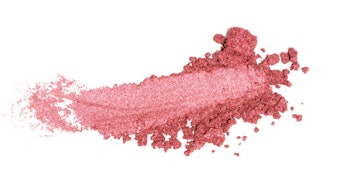According to recent reports, British biochemist Richard Bence, an advocate for organic beauty products, stated that women who use makeup daily are absorbing almost five pounds of chemicals each year. He also urged consumers to question the products they put onto their skin. According to United Press International, Bence said, "We have no idea what these chemicals do when they are mixed together." He added that the effect could be much more than the sum of the individual parts.
With concerns for toxicity prominent in today's world, statements such as these tend to quickly spur controversy: Are these genuine concerns or hype for organic products?
The Cosmetic, Toiletry and Perfumery Association in Europe commented that cosmetic products are covered by European Union rules requiring them to be safe, as featured in The Telegraph newspaper. This cocktail effect is an urban myth, the spokesman added--the industry knows how different chemicals react individually and can predict how they interact. These interactions are taken into account when safety is assessed.
The Daily Mail, among other sources, picked up on this story, reporting that Bence said there is a growing amount of research questioning the ingredients found in conventional beauty products and that consumer really need to start questioning the products they are putting on their skin.
Counter to this rising concern, The Independent ran a story on this claim made by Bence and interviewed Professor Philip Newsholme, a biochemist and senior lecturer at the University College Dublin, who challenged these findings as being questionable, and stated that women who switch to organic makeup are still ingesting the same basic ingredients since organic makeup is based on natural oils, as is non-organic commercially available cosmetics. He said, in the report, "They all come from similar oils and waxes so there's no real advantage of going organic."
Consumers continue to think that "natural" or "organic" ingredients automatically are safe. And while consumer perception definitely drives the market, an education of the consumer needs to occur, primarily so they know what they are putting onto their skin to determine whether it is safer for them as individuals. Some ingredients found in nature--i.e., what the consumer would consider "natural"--are not in fact safer; consider consumers with allergies or sensitivies.
One natural product Web site, www.lblossom.com, eloquently explained the two views:
Those that support synthetic ingredients point out that natural ingredients are complex compounds and that to get the benefit of one component you risk the negative effects--allergies, in particular--of the others. They also argue that a manufacturer does not simply duplicate a natural ingredient, they improve on it.
Those who favor naturals say the ingredients are complex compounds with hundreds of components that can have a synergistic interaction--making them better than the sum of their components. Furthermore, they argue against synthetic ingredients because they can be tainted by the undesirable chemicals used in their manufacture; they add that natural ingredients have been tested by virtue or their safe use for hundreds or even thousands of years.
Interestingly, Health Canada has published a list of natural ingredients pertinent to the cosmetic industry that includes synthetic compounds, so long as they are duplicates of the natural ingredient.
What does all this mean to cosmetic formulators and R&D managers? Well, consumers currently want naturals, so working with naturals will remain a key practice. However, being cognizant of the varied complexities, interactions and allergies, etc., associated with naturals will be important. It's more marketing's job to put the facts on the label and let the buyer beware.










